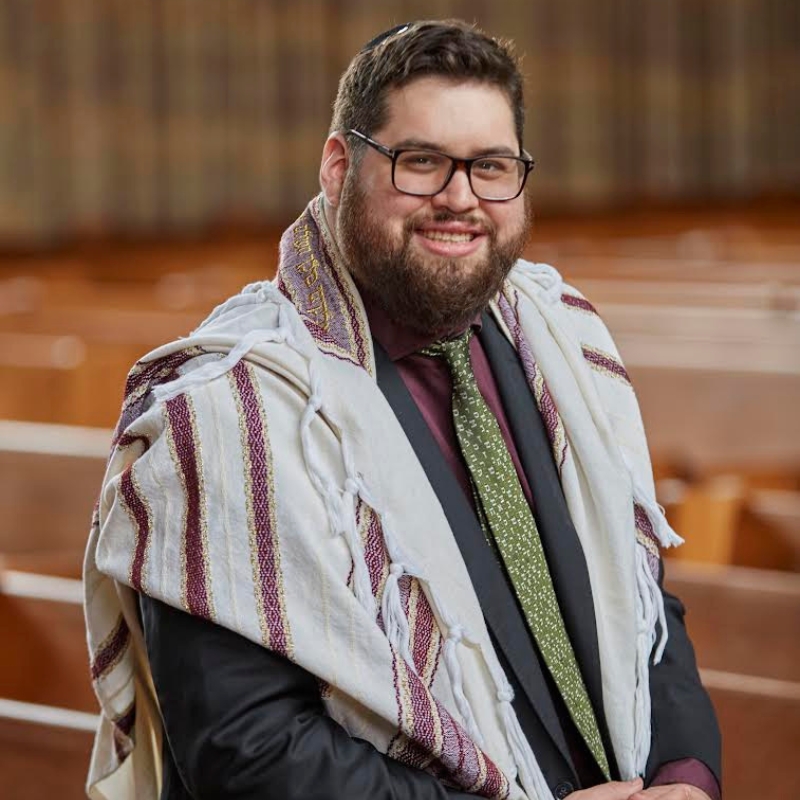The current administration continues to offer us opportunities to sport our T’ruah “Resisting Tyrants Since Pharaoh” swag as it attempts to strip federal employees of their collective bargaining rights. Therefore, it behooves us to reflect on the upcoming Passover holiday through the lens of one of the central pillars of our work: worker justice. After all, as Sarah Horowitz wrote in an article in The Atlantic more than a decade ago, the story we tell over the Passover table is essentially “the first great moment in labor history. The parallels come easily. The workers (Israelites) asked their union rep (Moses) to stand up to the boss (Pharaoh) about their terrible working conditions.” (“Let My People Bargain”)
One of our fellow members in the chaverim network, Cantor Vera Broekhuysen, borrowed this framing in her acceptance speech when she received the Abraham Joshua Heschel Award from the New England Jewish Labor Committee at their 25th annual Labor Seder last month. What made the metaphor so potent and brought together more than 300 Jews, labor organizers, and working folk at the IBEW local 103 hall was this essential truth: Labor is an intersectional value. Our identity as workers must be as indispensable to us as that of once having been slaves in Egypt.
Find more resources for Passover 2025.
For almost 140 years, Jews have been at the forefront of the American Labor Movement. Dayeinu, it would have been enough for us, if our ancestors had only leveraged their collective power to improve working conditions for all folks regardless of their identity as Jews. However, in ways that are nothing short of miraculous, it was precisely that Jewish identity that inspired them to advocate for social justice. As early as 1888, with the founding of the United Hebrew Trades (UHT) union, Jews have organized with our identity as a central foundation of the work. The UHT and others made familiar use of the social justice imperatives of the Hebrew prophets and references to modern-day Pharaohs to tie their contemporary struggles with those of our people throughout the ages. When Jews show up in support of worker justice, we tie ourselves to the grand tradition of American Jews who are compelled by our shared sacred history to make sure all workers are treated fairly. We do so as #tomatorabbis advocating that corporations join the Coalition of Immokalee Workers’ Fair Food Program; we do so locally and nationally in collaboration with diverse and directly impacted partners as part of a faith-based movement in solidarity for worker justice; we also do so by making sure our communities’ Passover celebrations are as free from worker exploitation as they are of chametz (leavened food that is forbidden during the holiday).
Worker justice is a central pillar of our work because it is essential to our story — not just in the relatively short American context. At the Pesach seder and far beyond, Jewish tradition asserts and reasserts the dignity of work as a foundational aspect of a just society. Pirkei Avot gives us the words of Rabban Gamliel, son of Rabbi Judah HaNasi: “The study of Torah is beautified when combined with a worldly occupation.” (Mishnah Pirkei Avot 2:2) As we see from the detailed instructions of this week’s Torah portion, Parshat Tzav, our communities depend on skilled labor. If not for the priestly guild’s maintenance and service of the Tabernacle, the people might not have had the means to commune with God. The priests, in turn, could not perform this public service without the contributions of the artisans who lent their expert craftsmanship to construct God’s abode. Ancient Israelite society depended on organized labor to realize their collective aspirations.
Find more commentaries on worker justice.
However, unlike Pharaoh’s exploitative objectification of the Israelites as a means to serve his own selfish ends, the people of Israel have a different experience under new management in the desert. The Holy One respects the union’s right to procure the best possible deal for its membership. In his commentary on the Torah, the 12th-century French Rabbi, Yosef Bekhor Shor, notes that even as the Israelites are redeemed from Egypt, they remain indentured to the Eternal. Bekhor Shor qualifies that the defining feature of this transition from one master to another is that our God provides the people with the necessary tools for liberation through the scaffolding of covenant, law, and sacred relationship.
This Passover, perhaps even with a tomato on our seder plates, let us rededicate ourselves to solidarity with working folk. Just as we are obligated to see ourselves as having been personally redeemed from Egyptian bondage, we are obligated to support workers’ right to organize and liberate themselves from the oppression of tyrannical bosses and would-be Pharaohs. Because, as my favorite union-printed t-shirt declares, we have been “Resisting Tyrants Since Pharaoh.” This Pesach, along with the songs Dayeinu, Chad Gadya, and Vehi Sheamdah, let us sing the anthem of the union: “Solidarity Forever.”
Rabbi Preston ‘Pesach’ D. Neimeiser (HUC-JIR NY ’21) is the associate rabbi of Temple Beth-El of Providence, RI. His family history is intertwined with that of the American labor movement, to which he credits many foundational aspects of his life and work. Together with his spouse, he seeks to impart a love of labor and a sense of solidarity to their 16-month-old, the family dog, and the next generation.

